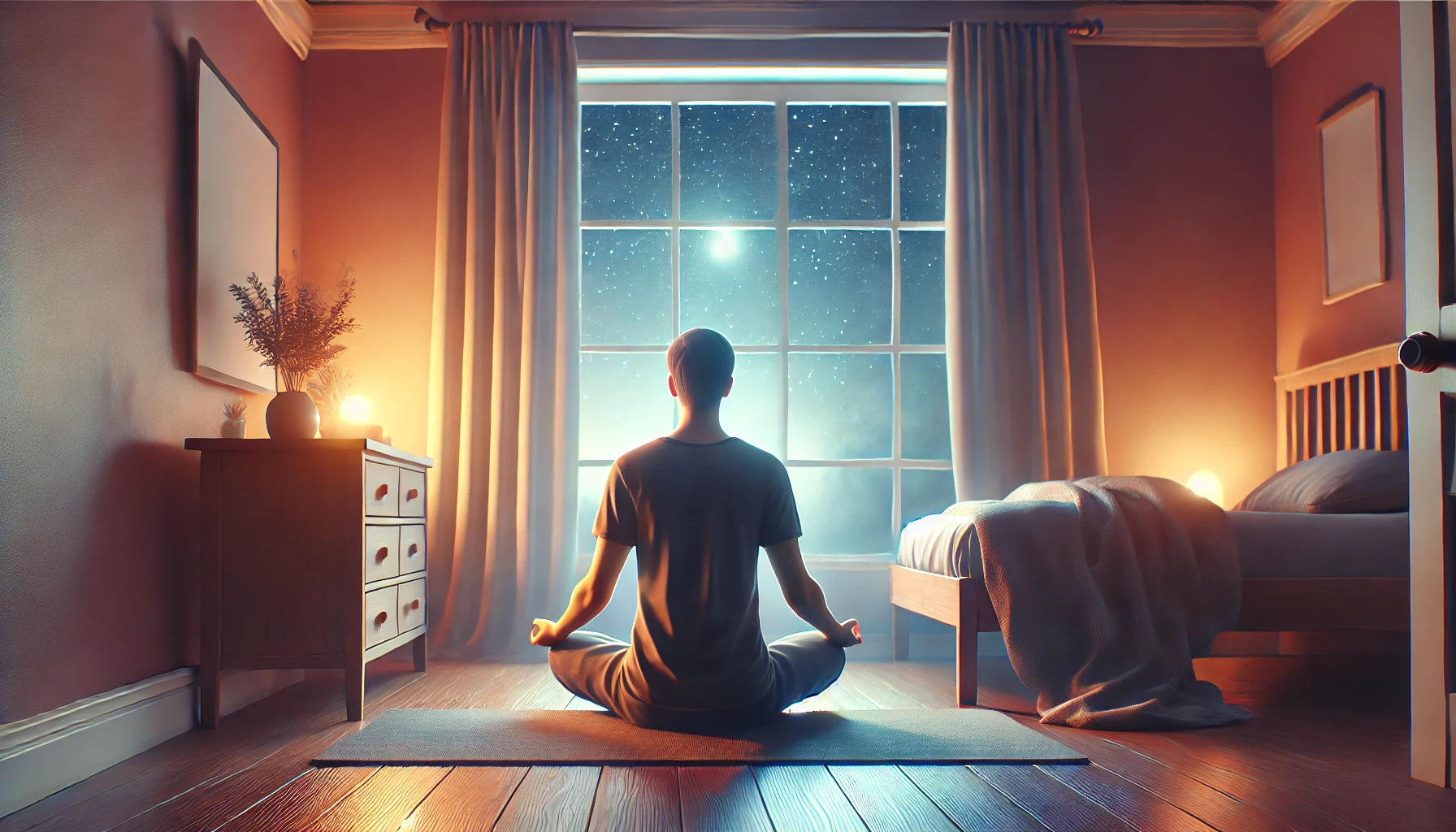Unlock the Secrets to Deep Sleep
Have you ever spent hours tossing and turning, unable to fall asleep, or woken up several times during the night, unable to drift back into rest? If so, you are not alone. Millions of people struggle with falling asleep quickly or maintaining a deep, uninterrupted sleep throughout the night. Sleep is crucial for maintaining our overall health and well-being, and when it’s compromised, it affects our energy, mood, and productivity.
The good news is that improving your sleep quality is possible. By incorporating a combination of effective techniques, mindful practices, and environmental changes, you can train your body and mind to fall asleep faster and stay asleep longer. In this article, we will explore actionable strategies, backed by science, to help you achieve restful, uninterrupted sleep every night.
The Importance of Sleep: Why Quality Matters
Before we dive into the ways to fall asleep faster, it’s important to understand why quality sleep is so essential. Sleep affects virtually every aspect of your physical and mental health, from your immune system and heart health to your memory, concentration, and emotional regulation. When sleep is compromised, your ability to think clearly, make decisions, and regulate emotions is significantly reduced.
During the night, the body goes through different stages of sleep, including light sleep, deep sleep, and REM sleep. These stages are essential for different bodily functions. Deep sleep is the most restorative, helping with physical recovery, muscle repair, and immune system strengthening. REM sleep, which is when most of our dreaming occurs, is essential for memory consolidation, emotional processing, and brain detoxification.
If you are not able to enter or maintain these restorative stages of sleep, your body and mind do not receive the full benefits of rest. As a result, you may experience fatigue, irritability, brain fog, and increased stress. The key is to not only fall asleep quickly but also to stay asleep and ensure your body cycles through all the stages of sleep without interruption.
Why You Struggle to Fall Asleep: Understanding Sleep Disruptors
There are several reasons why falling asleep can be difficult, and understanding these disruptors is the first step toward addressing the issue. Here are some common reasons why people struggle to fall asleep and stay asleep:
Stress and Anxiety: When the mind is overactive with worries, anxieties, or racing thoughts, it becomes difficult to relax and fall asleep. Stress triggers the release of cortisol, a hormone that keeps you alert and on edge, preventing you from winding down.
Blue Light Exposure: The blue light emitted by smartphones, laptops, and TVs interferes with melatonin production, the hormone responsible for regulating sleep. Prolonged exposure to blue light late at night can delay your body’s internal clock and make it harder to fall asleep.
Poor Sleep Environment: A noisy, cluttered, or uncomfortable bedroom can make it difficult for your body to relax. A room that is too hot, too cold, or too bright can disrupt your ability to drift off into a deep, peaceful sleep.
Caffeine and Alcohol: Consuming caffeine or alcohol close to bedtime can significantly disrupt sleep. While alcohol may initially make you feel drowsy, it disrupts the quality of your sleep, particularly in the latter stages of the night. Caffeine, on the other hand, is a stimulant that can keep you awake, even hours after consumption.
Inconsistent Sleep Schedule: Going to bed and waking up at different times every day can confuse your body’s internal clock, making it difficult to establish a consistent sleep routine. This can lead to delayed sleep onset and frequent awakenings throughout the night.
Strategies to Fall Asleep Faster: Train Your Body for Rest
Now that you understand the factors that disrupt your sleep, let’s explore proven strategies to help you fall asleep faster. Incorporating these techniques into your nightly routine can make a significant difference in your ability to unwind and achieve restful sleep.
Create a Relaxing Bedtime Routine
One of the most effective ways to fall asleep faster is by establishing a calming pre-sleep routine. A relaxing routine helps signal to your brain that it’s time to wind down. Activities like reading, meditating, or practicing deep breathing exercises can help ease the transition from daytime alertness to nighttime rest. Try setting aside 20-30 minutes before bed to engage in calming activities that help you relax.
Mindful Breathing Techniques
Deep breathing exercises are a great way to activate your parasympathetic nervous system, which helps calm your body and reduce stress. One of the most effective breathing techniques is the 4-7-8 method: inhale deeply for a count of 4 seconds, hold your breath for 7 seconds, and then exhale slowly for 8 seconds. Repeat this cycle for several minutes to calm your nervous system and prepare for sleep.
Limit Screen Time
As mentioned earlier, the blue light emitted by electronic devices can interfere with melatonin production, delaying sleep onset. Try to avoid using your phone, computer, or TV at least one hour before bedtime. Instead, opt for activities like reading a book, journaling, or taking a warm bath. This will help signal to your body that it’s time to relax and prepare for sleep.
Cognitive Behavioral Techniques
If your mind is racing with worries, using cognitive behavioral techniques can help calm those thoughts. One method involves acknowledging your worries but reminding yourself that they can be addressed tomorrow. Writing your thoughts down in a journal before bed can also help unload mental clutter, allowing you to enter a state of relaxation.
Optimize Your Sleep Environment
Making your bedroom a sleep-friendly sanctuary is key to falling asleep quickly and staying asleep throughout the night. Ensure that your bedroom is quiet, dark, and cool. You may also want to invest in blackout curtains, earplugs, or a white noise machine to block out distractions. Your mattress and pillows should be comfortable, supporting good posture and a restful night’s sleep.
How to Stay Asleep Through the Night: Maintain Consistency
Once you’ve fallen asleep, the next goal is to stay asleep all night. Waking up multiple times during the night can leave you feeling groggy and unrested. To achieve uninterrupted sleep, consider these strategies:
The more consistent your sleep schedule, the easier it is for your body to fall and stay asleep. Try to go to bed and wake up at the same time every day, even on weekends. By regulating your internal body clock, you help train your body to fall asleep more easily and stay asleep longer.
Avoid consuming caffeine or nicotine for at least six hours before bedtime. These substances are stimulants that can keep you awake, preventing your body from entering a relaxed state. Additionally, while alcohol may initially make you feel drowsy, it can disrupt your sleep cycles and cause you to wake up during the night.
Stress and anxiety are major contributors to interrupted sleep. By managing these emotions throughout the day, you reduce the likelihood of waking up at night. Practicing relaxation techniques such as meditation, mindfulness, and yoga can help reduce stress levels and improve sleep quality. The more relaxed your mind is before bed, the less likely you are to wake up in the middle of the night.
To avoid waking up in the middle of the night to use the bathroom, limit your fluid intake during the hour or two before bedtime. Drinking too much liquid right before bed can lead to frequent trips to the bathroom, disrupting your sleep and making it harder to stay asleep.
Eating large or heavy meals late at night can make it difficult for your body to digest and may interfere with sleep. If you need a snack before bed, opt for light, sleep-promoting foods like bananas, almonds, or a small bowl of oatmeal. These foods can help increase melatonin levels and promote relaxation.
The Power of a Good Night’s Sleep: Unlock Your Full Potential
Sleep is not a luxury; it’s a vital component of your overall well-being. By improving your sleep hygiene and incorporating the tips discussed in this article, you can enjoy better mental clarity, enhanced mood, and improved physical health. Quality sleep allows you to function at your best and helps you unlock your full potential each day.
Whether you struggle with falling asleep or staying asleep, implementing small changes can make a big difference. Be patient with yourself as you adjust your sleep habits, and remember that consistency is key. By prioritizing sleep and using natural methods to improve your rest, you will enjoy the rejuvenating benefits of a good night’s sleep, leading to better health, improved performance, and a happier, more balanced life.




